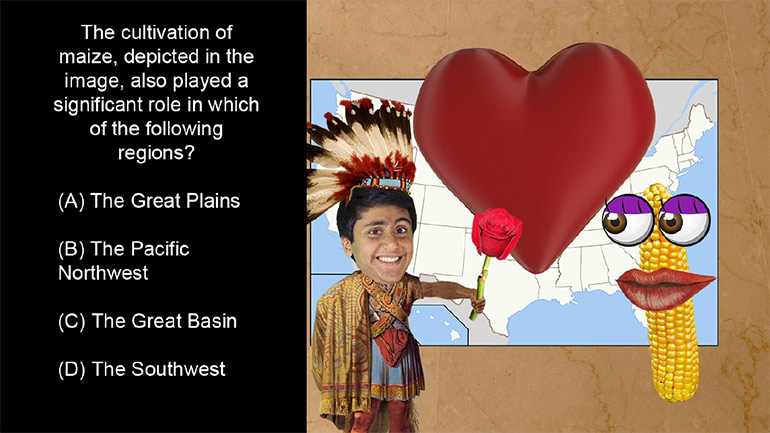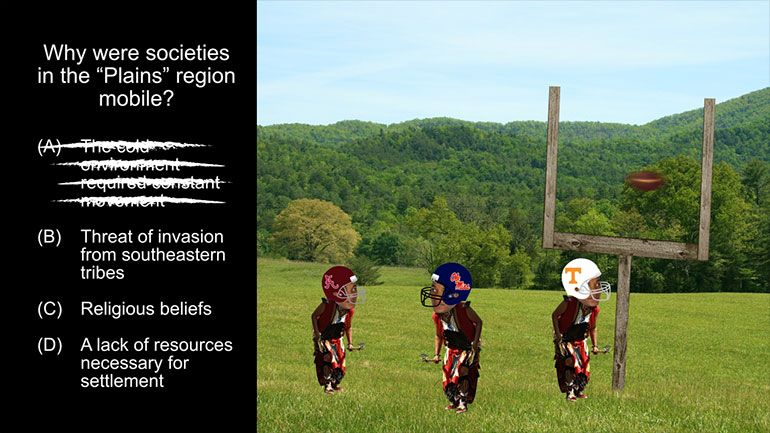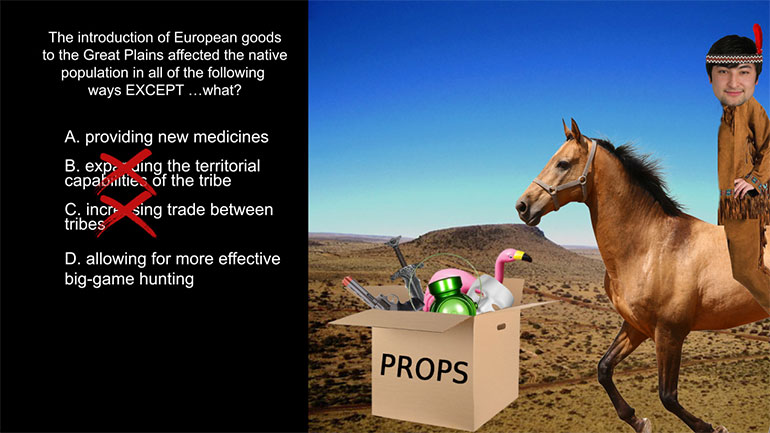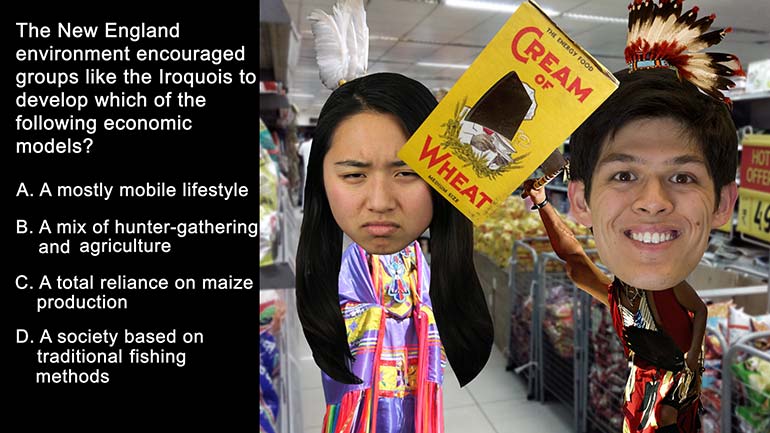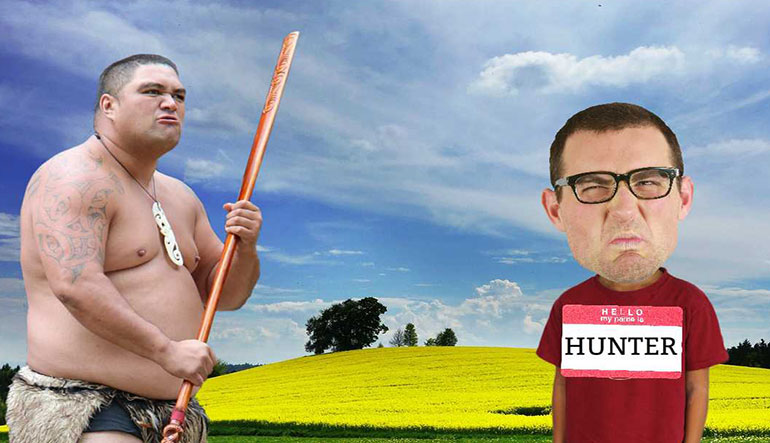ShmoopTube
Where Monty Python meets your 10th grade teacher.
Search Thousands of Shmoop Videos
U.S. History 1492-1877: The Civil War 100 Views
Share It!
Description:
Today's lesson: The Civil War. A war may be civil, but it's never pretty. Well, aside from the Pretty Pink Fairy Wars of '93...but no one seems to want to talk to us about those.
Transcript
- 00:03
Secession was a seriously slippery slope say that five [boy falls down a slide]
- 00:07
times fast nevermind don't, we gave it a shot we got spit everywhere..What
- 00:12
we're getting at is that the Secession of the Confederacy posed a threat to the
- 00:16
Union just by existing if it were successful in leaving the Union then it
- 00:20
would be impossible for the federal government ever again enforce the [Congress building]
Full Transcript
- 00:24
Constitution as soon as the Constitution or federal law got in the way of state [Man pushing up the constitution]
- 00:29
government then that state could be just like ha I'm totally on my own
- 00:33
Confederacy now suckas yeah in order for the federal government to survive in the
- 00:39
long term it had to force the Confederate States back into line we [Soldier forcing states into line]
- 00:43
don't like to talk in absolutes but war is pretty much inevitable the Union had
- 00:46
to convince the Confederacy that they or rather the Constitution was the alpha [Two soldiers fighting]
- 00:52
dog in this pack of states well, the war broke out on April twelfth 1861 and
- 00:57
lasted until May 10 1865 two hundred ten thousand soldiers were killed in action
- 01:03
and another 400,000 died of disease or battle wounds, more Americans died in the
- 01:09
Civil War than in any war since and as a percentage of our population back then
- 01:14
it was well yeah cataclysmic world war two was a very distant second but when
- 01:19
it's Americans fighting Americans there's no avoiding American death tolls [kids bullying a boy on a bus]
- 01:23
that are scarily high a big chunk of the fighting happened in Virginia mostly
- 01:27
because the two capitals Washington DC and Richmond Virginia were hilariously
- 01:32
close to each other it was kind of like magneto and Professor X facing off [Magneto and Professor X in a park by a chess board]
- 01:36
across a chess board except the only superpower anybody had was making a lot
- 01:40
of people die over time the fighting spread across the country like a nasty [Red blob spreads across the US]
- 01:44
rash in the summertime Union ships blockaded southern ports and fought arms
- 01:49
dealers on the Atlantic union general Meade got the upper hand on Lee in
- 01:53
Gettysburg Pennsylvania and Ulysses S. Grant stepped in to finish the job [Ulysses replaces Meade]
- 01:58
meanwhile Union General Sherman stabbed the south in the heart when he
- 02:02
sacked Atlanta and set much of Georgia's food supply on fire..peach lovers [Fire burning and woman holding a peach]
- 02:07
everywhere shed a tear..Over the years the public cared less and less about the
- 02:11
actual policies that started the war instead the public saw the war as
- 02:16
one between two versions of America there was the mostly free industrial
- 02:21
technology oriented north and the aristocratic South even many poor [industrial factory on the coast]
- 02:26
southern whites who didn't own slaves supported the Confederate Army because [Family eating dinner outside]
- 02:31
they saw the north as aggressive jerks threatening their way of life out there
- 02:35
they try and take away their sweet tea by the end of the war in 1865 the south
- 02:39
had no choice but to throw in the towel and concede to those rude Yankees [Southern soldier surrendering to northern soldier]
- 02:43
despite their wily military tactics the south lack of money, industry, resources,
- 02:49
and manpower had done it in but that's okay the war was over now the South had
- 02:54
tons of stuff to look forward to like years of social upheaval abject poverty [Southerners with cups of iced tea]
- 02:59
and exploitation during Reconstruction....err, yay..
Up Next
AP U.S. History Period 1: 1491-1607 Drill 3, Problem 2. The cultivation of maize, depicted in the image, also played a significant role in which of...
Related Videos
AP U.S. History Exam 2.2. Prior to European contact, why was it necessary for the societies of the "Plains" region on the map to live a mobile life...
AP U.S. History 1.2 Period 1: 1491-1607. The introduction of European goods to the Great Plains affected the native population in all of the follow...
What kind of economic model did New England's environment encourage the Iroquois, and similar cultures, to adopt?
AP U.S. History Exam 2.3. How were the societies in the Northwest similar to those in parts of California?
